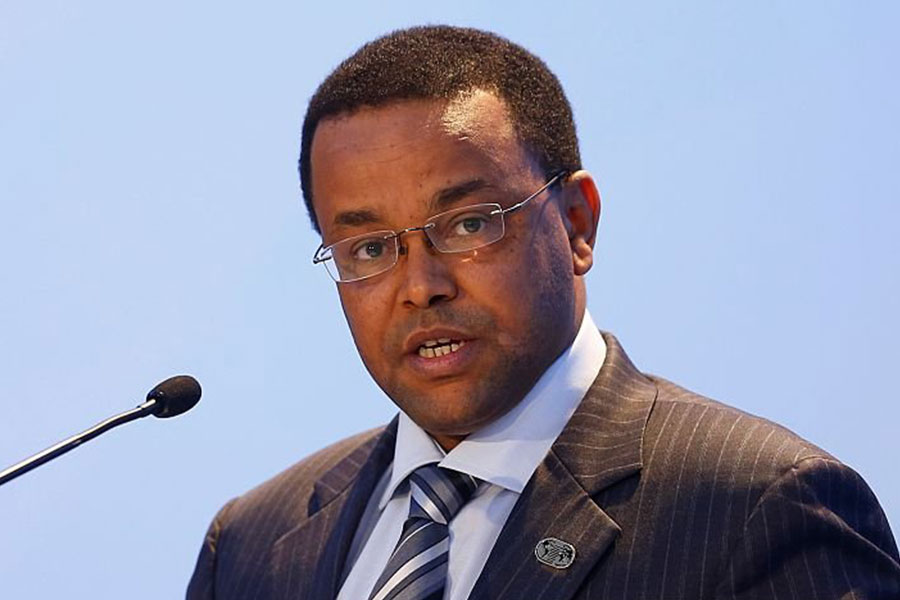
Fortune News | Jun 18,2022
Uncertainty has reigned in the banking industry since the National Bank of Ethiopia (NBE) lifted the mandate that private banks buy bonds from the Development Bank of Ethiopia (DBE) earlier this week. As of the third quarter of the last fiscal year, the 16 banks were owed 86 billion Br before interest from bonds purchased over the eight years since the directive has been put in place.
The uncertainty comes despite the firm opposition bankers, international institutions and banking experts had toward the original directive the NBE put in place to redirect deposits mobilised by the private banks toward the DBE. They question the ability of the policy bank to pay back the bonds now, as well as the macroeconomic consequences it will have down the road, since the policy was ended on November 20, 2019.
Worth 27pc of the gross loans and advances of the banks, with a maturity period of five years, the mandatory bonds were aimed at involving commercial banks in the national development endeavor.
“The rationale behind the bond was not limited to only supporting the economic growth through financing of mega projects but also to enforce a tight monetary policy to regulate inflation,” said a macroeconomist who preferred to remain anonymous.
In the first year that the directive came into force, 10 of the largest commercial banks invested 5.8 billion Br in NBE bills, which is 26.6pc of the total outstanding loans and advances of the banks.
Eight years later, the banks had purchased a total of 116 billion Br of the bonds, of which 30 billion Br was repaid to them with interest once they reached their maturity period. The interest rate on the bonds first stood at three percent, while the banks were forced to live with a five percent minimum interest cap on deposits.
Uncertainty has reigned in the banking industry since the National Bank of Ethiopia (NBE) lifted the mandate that private banks buy bonds from the Development Bank of Ethiopia (DBE) earlier this week.
Alarmed by the declining liquidity position of the banks, the Ethiopian Bankers Association (EBA) shared its position in 2011 in a 24-page assessment of the directive.
“The basis of the calculation to determine the bills to be purchased should be changed to the net deposit or net loan, instead of using the disbursement amount,’’ argued the Association.
It was not just the Association but also international financial institutions such as the International Monetary Fund (IMF) that did not show enthusiasm for the mandatory bond. Jan Mikkelsen, former resident representative of the IMF for Ethiopia, openly called for the administration of Prime Minister Hailemariam Desalegn to phase out its policy on the obligatory bond bill purchase in 2012.
The first signs of wavering from the government side came in 2017 following the devaluation of the Birr by 15pc against a basket of major currencies. In an effort to tame inflation, the central bank raised the minimum cap on interest rates for bank deposits to seven percent.
A year later, the NBE issued a new directive amending the interest rate of the bond to five percent on August 29, 2018. The directive also stated that the interest rate on NBE bills bought before September 2018 has to remain at three percent.
“The NBE bill rate is less than a third of the lending rate so the opportunity cost to private banks has been enormous,” said Abdulmenan Mohammed, an expert with over 15 years of experience in auditing and finance in Ethiopia and the United Kingdom.
While the directive repeals the mandatory bond, some provisions have been retained for the private banks, which have around 3,745 branches, a cumulative capital of 42 billion Br and loaned 15 billion Br in the third quarter of the past fiscal year.
The private commercial banks may transfer NBE bills to another bank, use them as collateral and arrange with the NBE to hold the bills in custody on its behalf.
“The lifting of the mandatory bond is a substantive benefit to the newly established banks, as they are more susceptible to cash liquidity problems,” said the macroeconomist.
Banks, while reserved about the long term, do believe that this is a positive move forward.
“This doesn’t reimburse the obligatory bond bills that are already bought, but it halts the damage on future loans,” said Abie Sano, president of Oromia International Bank (OIB).
Nonetheless, industry players and economists are at a loss to explain what the future holds.
“What worries me the most is that the replacement of the directive did not put any instrument in place to control the shock factor,” argues the macroeconomist. “The lifting of the bond will create inflation due to an appetite for money and increased lending.”
Currently, general inflation stands at a five-year high, with September recording 18.6pc, according to the Central Statistical Agency (CSA).
“This is expected to be followed by an increase in imports as it awakens the private sector and people to borrow more money,” says the macroeconomist, regarding Ethiopia’s already distorted trade imbalance of around 12 billion dollars. “This will worsen the forex crunch.”
The policy bank’s ability to repay the loans is also in doubt now that one of its steady injections of capital will stop. The development bank had received around 52 billion Br as a result of the mandatory bond by the third quarter of the last fiscal year, but the performance of its credit ventures have not been impressive.
In the first three quarters of the 2018/19 fiscal year, DBE recorded a loss of 1.7 billion Br from its operations, and its interest on loans and advances registered a 10pc decrease. In the fiscal year before that, around 61pc of its total loans were classified as either doubtful, substandard or a loss.
“A considerable sum of money is held with the DBE, thus repayment will be difficult. As a result, the NBE might be forced to print money,” said Abdulmenan. “The other option is negotiating with private banks for longer repayment terms.”
PUBLISHED ON
[ VOL
, NO
]

Fortune News | Jun 18,2022

Radar | Aug 25,2024

Radar |

Fortune News | Jan 19,2019

Fortune News | May 28,2022

Dec 22 , 2024 . By TIZITA SHEWAFERAW
Charged with transforming colossal state-owned enterprises into modern and competitiv...

Aug 18 , 2024 . By AKSAH ITALO
Although predictable Yonas Zerihun's job in the ride-hailing service is not immune to...

Jul 28 , 2024 . By TIZITA SHEWAFERAW
Unhabitual, perhaps too many, Samuel Gebreyohannes, 38, used to occasionally enjoy a couple of beers at breakfast. However, he recently swit...

Jul 13 , 2024 . By AKSAH ITALO
Investors who rely on tractors, trucks, and field vehicles for commuting, transporting commodities, and f...

Nov 1 , 2025
The National Bank of Ethiopia (NBE) issued a statement two weeks ago that appeared to...

Oct 25 , 2025
The regulatory machinery is on overdrive. In only two years, no fewer than 35 new pro...

Oct 18 , 2025
The political establishment, notably the ruling party and its top brass, has become p...

Oct 11 , 2025
Ladislas Farago, a roving Associated Press (AP) correspondent, arrived in Ethiopia in...